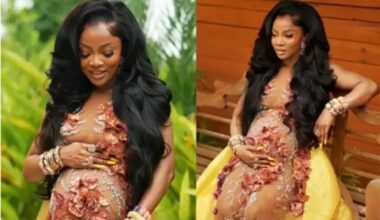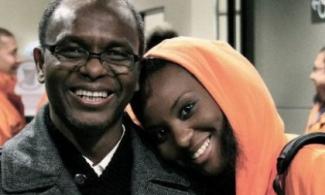In Nigeria, words often carry different meanings depending on the region, culture, and context in which they are used. One such word is “Aboki”, a Hausa term that literally means “my friend.” While it originates from northern Nigeria and is a positive, friendly term, its interpretation varies widely—especially in southern Nigeria.
In this post, we’ll explore the true meaning of the word “Aboki,” how it’s used in different parts of Nigeria, and why the term sometimes carries unintended negative connotations.
The Literal Meaning of “Aboki”
In Hausa, “Aboki” simply means friend or companion. It is derived from everyday interactions in Hausa-speaking regions and is often used to refer to someone warmly and respectfully.
For example:
- “Ina kwana, aboki?” — “Good morning, my friend.”
In the north, calling someone Aboki is generally seen as a term of endearment or camaraderie, especially among friends and business associates.
READ ALSO: Is It 'Barber Your Hair' or 'Barb Your Hair'? – A Look at Nigerian English
“Aboki” in Southern Nigeria: A Misunderstood Term
Growing up in southern Nigeria, particularly in areas like the South-West and South-South, many people recall hearing “Aboki” used in an entirely different way. It was commonly used to refer to Hausa or Fulani individuals, especially those working as:
- Shoemakers (cobblers)
- Tailors
- Suya vendors
- Security guards
- Wheelbarrow pushers or manual laborers
While this usage may have started innocently, over time, the word “Aboki” in the south began to carry a stereotypical and derogatory undertone. It was no longer just about ethnicity—it became a way to label or belittle someone, often implying they were uneducated, naive, or inferior.
This shift in meaning has caused many northern Nigerians to feel disrespected when called “Aboki” by southerners, even though the word should be a compliment.
Is It Offensive to Call Someone “Aboki”?
It depends on who is saying it, where they’re saying it, and how they’re saying it.
- If a fellow Hausa person says “Aboki,” it’s clearly a term of friendship.
- If a Southerner says “Aboki” in a friendly, respectful tone, it may still be acceptable.
- However, if it’s said in a mocking or dismissive way, it may come across as offensive or stereotypical.
This is why context matters. Many Hausa people today would prefer not to be called “Aboki” by non-Hausa speakers unless there is already a mutual relationship of respect.
Should You Stop Using the Word “Aboki”?
Yes—if you’re using it incorrectly or offensively.
The issue isn’t with the word itself, but how it is used or misused.
If you’re using “Aboki” as a blanket term for every Hausa or Fulani person you see—even when you don’t know their name—it can be demeaning. It reduces their identity to a stereotype rather than recognizing them as individuals.
So unless you’re using “Aboki” in the right cultural context, with the right tone and relationship, it’s better to call people by their real names or simply say “Mallam” (a respectful title), “Sir,” “Brother,” or even ask how they prefer to be addressed.
Language Reflects Respect
Words are powerful, and in a country as diverse as Nigeria, understanding the cultural weight of certain terms is essential.
“Aboki” may mean “friend” in Hausa, but in the wrong context, it can feel like an insult.
As we strive toward unity and mutual respect across ethnic lines, let’s be more intentional with our words. What we mean may not always be what is heard.
Final Thoughts
So, what does “Aboki” mean where you come from? Is it a compliment, a joke, or something else entirely? The key is not just knowing what a word means, but understanding how it is perceived. Let’s use language to connect, not divide.





